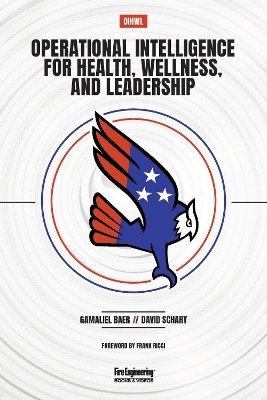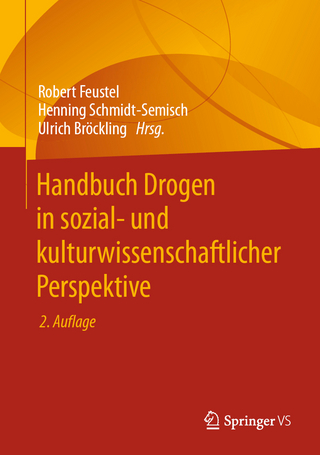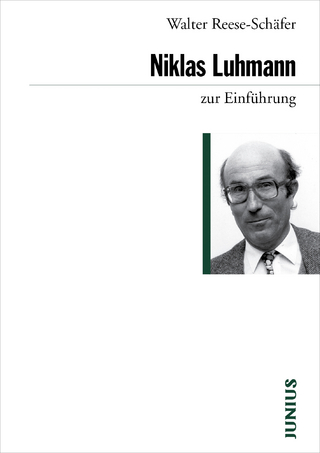
Operational Intelligence for Health, Wellness, and Leadership
Fire Engineering Books (Verlag)
978-1-59370-588-6 (ISBN)
- Titel z.Zt. nicht lieferbar
- Versandkostenfrei innerhalb Deutschlands
- Auch auf Rechnung
- Verfügbarkeit in der Filiale vor Ort prüfen
- Artikel merken
Operational Intelligence for Health, Wellness, and Leadership (OIHWL) addresses human behavior and the impact of lifestyle on the Big Three health outcomes of heart attack, cancer, and suicide. It weaves together the concepts of resilience, physical wellness, nutritional wellness, mental wellness, and leadership. OIHWL’s model for behavior change is built using Aristotle’s philosophy of responsibility. OIHWL is designed to show the application of the behavioral change model throughout the book. The result is a logically consistent and easy-to-follow framework that any firefighter can apply to their life and that any fire department can adopt and implement as education for its members. This remains the case even if some, or all, of the hundreds of citations eventually age out, because the model is true. The final chapter presents an objective (and thus assessable) definition of leadership. It aims to displace the decades of leadership theory that is subjective in nature and often indistinguishable from management theory. Just as NFPA outlines categorically that certain fire apparatus are aerials and not engines, there is a way to distinguish, categorically, between leadership and management. OIHWL is the comprehensive guide for learning how to optimize behavior that is within your control.
Gamaliel Baer is a firefighter/EMT and special operator for Howard County (MD) Fire and Rescue. He currently serves as a U.S. Coast Guard Reserve officer and is a volunteer for the National Fallen Firefighters Foundation. He is credentialed by the Center for Public Safety Excellence (CPSE) as a Chief Training Officer (CTO), and by the American College of Exercise (ACE) as a certified health coach and a certified personal trainer. Dr. Baer serves as adjunct faculty at Johns Hopkins University where he teaches Leading and Managing Change for the Master of Science in Organizational Leadership. Dr. Baer earned his Bachelor of Science in Marketing and International Business at the University of Maryland, College Park. He earned his Master of Science in Management from Johns Hopkins University, and he earned a Doctor of Education in Organizational Leadership from the University of Southern California. He lives in Howard County, Maryland, with his wife and four children. David Schary is an associate professor of Exercise Science at Winthrop University where he focuses on improving athlete mental health and performance. In addition, Dr. Schary consults with Winthrop Athletics, the U.S. Forest Service, and the National Fallen Firefighters Foundation. Prior to academia, Dr. Schary coached rowing at the high school and collegiate levels.Dr. Schary completed his PhD in Exercise and Sport Science with a concentration in Exercise and Sport Psychology and Master of Public Health with a concentration in Biostatistics at Oregon State University. He also holds a Master of Science in Exercise and Sport Studies from Smith College and a Bachelor of Arts in Sociology from the University of California, Davis. Currently, Dr. Schary is enrolled in Winthrop University’s Clinical Mental Health Counseling program.
Foreword
Preface
Acknowledgments
Introduction
1.Resilience
Why is Health and Wellness Important?
Defining Health and Wellness
Defining Resilience
Growing Human Resilience
A Need for Health and Wellness Education
Individual and Organizational Responsibility
The Change Assessment Model
Micro: You and The Cell
Macro: The Group and You
Conclusion
Questions
Notes
2.Physical Wellness
Part 1: Nature and Nurture
Part 2: Deficiency and Excess
Part 3: Micro and Macro
Conclusion
Questions
Notes
3.Nutritional Wellness
Introduction
Part 1: Nature and Nurture
Part 2: Deficiency and Excess
Part 3: Micro and Macro
Conclusion
Questions
Notes
4.Mental WellnessIntroduction
Part 1: Nature and Nurture
Part 2: Deficiency and Excess
Part 3: Micro and Macro
Conclusion
Questions
Notes
5.Leadership
Introduction
Part 1: Nature and Nurture
Part 2: Deficiency and Excess
Part 3: Micro and Macro
Conclusion
Questions
Notes
Answers to End of Chapter Questions
Index
About the Authors
| Erscheint lt. Verlag | 8.2.2024 |
|---|---|
| Sprache | englisch |
| Maße | 152 x 229 mm |
| Themenwelt | Sozialwissenschaften ► Soziologie |
| Technik ► Bauwesen | |
| ISBN-10 | 1-59370-588-3 / 1593705883 |
| ISBN-13 | 978-1-59370-588-6 / 9781593705886 |
| Zustand | Neuware |
| Haben Sie eine Frage zum Produkt? |
aus dem Bereich


